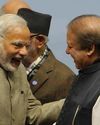The debate surrounding Sanjay Leela Bhansali’s Padmavati brings India a complex network of portraits within a cultural world-system.

IN THE LAST few weeks, the roils over Sanjay Leela Bhansali’s Padmavati have reached a critical crescendo. Though few have seen exactly what it contains, the film’s release has already been delayed owing to controversies it has generated. After the censor board’s official verdict, it may face further cuts or strictures, running into further obstacles.
Once released, and its exact contents are known, people may continue to react to it or, more optimistically, give it their qualified approval. Perhaps, it may not, after all, be all that offensive to our notions of history. Whatever the outcome — ban, boycott, or appreciation, what will be reconfirmed, is the close causal relationship between capital and culture. We will once again see that a cultural world-system exists, important features of which are competing and contradictory narratives, each assiduously promoted and marketed. That these narratives also generate political capital and consequences should be equally obvious.
In the earlier two parts of this series, we have seen how forces of capital not only penetrate even the most insulated or remote parts of our culture, but create new patterns of behaviour, supplanting older value systems with habits of thought and consumption. It is the market that dominates culture; no aspect of culture seems to escape its impact. Music, dance, theatre, cinema, art, and literature — all seem to be under its sway and influence. The bottom line is clear — that something exists culturally, albeit humbly, is not enough. If you cannot capitalise, monetise, and market it, then it is of little use. This is the current trend in India. Where does that leave us?
CULTURAL CAPITAL
This story is from the December 2017 edition of Swarajya Mag.
Start your 7-day Magzter GOLD free trial to access thousands of curated premium stories, and 9,000+ magazines and newspapers.
Already a subscriber ? Sign In
This story is from the December 2017 edition of Swarajya Mag.
Start your 7-day Magzter GOLD free trial to access thousands of curated premium stories, and 9,000+ magazines and newspapers.
Already a subscriber? Sign In

Refuging Progess
There is a well-orchestrated global conspiracy to deny scientific and technological developments from the West to Third World countries.

The Monk Of Science
Vivekananda believed that Religion should be subjected to scientific methods of investigation. The third and concluding part of our series on the Swami and his views on science.
The Next Step
Indian technical manpower can be trained for high-value-added emerging services in the era of mass commoditisation of hardware.
The Threat Of Autarchy
The force of globalisation is an irreversible reality, and it is countries like India and China that will nurture it going forward.

Neanderthals: The Womb Of Caves
Recent discoveries indicate that Neanderthals may have had a rich inner life, including symbolic thought. Indeed, they may have been the progenitors of human religions.

Getting India's World Right
Incremental concessions will get India nowhere with Pakistan and China. What we need is a classically conservative foreign policy, based on realism.

The Hesitant Orbit
In order to march boldly ahead into the deep space, New Delhi must work towards building a station, boost its techno-economic planning and use the Indian Space Research Organisation smartly.

Nudges And Narratives
The debate surrounding Sanjay Leela Bhansali’s Padmavati brings India a complex network of portraits within a cultural world-system.

The Spell Of Specialisation
THE INDIAN ADMINISTRATIVE SERVICE NEEDS AN URGENT REJIG. THE KEY TO SPEED AND EFFICIENCY LIES IN PUTTING AN END TO A GENERALIST APPROACH AND IN GOING FOR A NEW SERVICE.
The Great Gamble
With demonetisation, the prime minister has taken a huge risk— both economic and political. He must succeed, because this move could transform both our economy and our society.